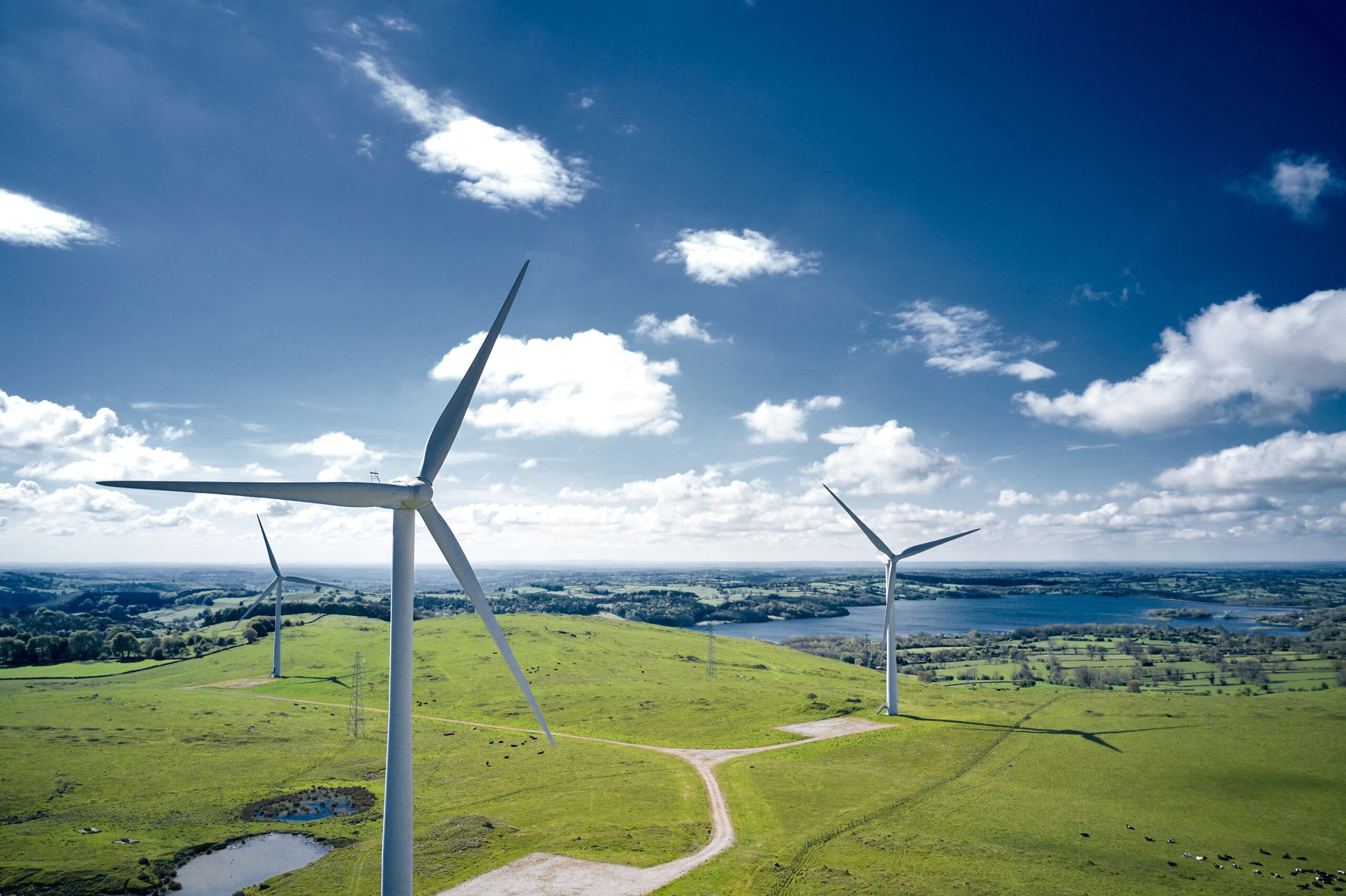
5 key considerations when negotiating Corporate Power Purchase Agreements (CPPA)
Businesses are increasingly turning to Corporate Power Purchase Agreements (CPPAs) to boost their sustainability credentials and secure energy budget certainty for the long-term.
Businesses are increasingly turning to Corporate Power Purchase Agreements (CPPAs) to boost their sustainability credentials and secure energy budget certainty for the long-term.
In 2021, there was a 1.1 GW increase in renewable PPAs in the UK, and as the need for renewable capacity grows, it’s likely that more businesses will be signing CPPAs in the near future. But unlike traditional energy supply tariffs, no two CPPAs are the same – and how a business handles the negotiation process can make a significant difference to the CPPA they sign and the benefits they receive.
So if your business is ready to explore a CPPA, you need to be ready to expertly negotiate…
Volume
While Corporate Power Purchase Agreements once required businesses to purchase significant volumes from generators, there are now more opportunities for businesses with smaller volumes to get involved in CPPAs due to the development of aggregated baskets of offtakers and many generators now sell their power to multiple parties rather than a single offtaker.
This means that you can negotiate with the generator to agree to purchase a set volume of electricity that both sides are happy with. So think about how much electricity your business should purchase under the CPPA – what proportion of your electricity needs will this agreement provide? As CPPAs are typically long-term agreements lasting up to 25 years, you should also consider how your consumption may change over the contract’s duration. If your business is focusing on energy efficiency, for example, then your baseload consumption may fall, so you may want to consider limiting the volume you purchase under your CPPA.
Ask the generator for their expected or historical generation output, so that you can assess whether it is likely to be able to deliver the volume that you require. Many businesses choose to source a proportion of their electricity needs from the CPPA, and the rest from a traditional supply renewable energy contract. This way, they ensure that if the generator cannot provide the volume required for any reason, they can simply increase the amount of energy they use under the traditional contract. We recommend diversifying your supply portfolio in this way to ensure your security of supply.
Term
As Corporate Power Purchase Agreements evolve, the length of the contracts available are becoming more flexible, which means your business should be able to negotiate a term that suits your procurement strategy.
As your business will pay a pre-agreed price for the duration of your contract, you need to consider how long you’re happy to be tied into a fixed price for. If budget certainty is more important to your business than always achieving the best price, then you may wish to negotiate a long-term contract – PPAs can last up to 25 years or longer. However, if you’re not comfortable with such a long-term agreement, you may be able to negotiate the term down to 10 or even 5 years.
In addition to thinking about the contract’s end date, you should also consider when you will need the contract to start. If your current contract is due for renewal shortly, you will probably need to opt for an existing, operational asset that’s available for immediate delivery. If you have more time before your existing contract expires, you can explore new build assets, but be aware that there’s always a risk that a project might not come online in time. Or there is sometimes the option to renew your existing supply contract, ensuring there is provision built in to sleeve volume from a CPPA.
Structure
Corporate Power Purchase Agreements can be structured in various ways, and it’s important to understand the differences between these structures to ensure that you can negotiate the best structure for your business.
Among the most common types of CPPA is a private wire or on-site PPA, which enables you to sign a contract with the generator directly and ensures that your business receives the energy it generates. This means that you can cut out third parties and avoid non-commodity costs, which may seem very appealing, but as it requires you to install a generation asset on-site, it may not be possible unless you have extensive space in which to do so. If you own the property, it is simpler, but if you lease then the Landlord would need consulting and the lease term would need to be long enough to cover the PPA term.
If you don’t have the land to install an on-site generation asset, you may opt for a sleeved PPA, in which an electricity supplier facilitates the delivery of energy from the renewable asset to your business via the grid. Or you could choose a synthetic or virtual PPA, in which the electricity generated by the renewable energy asset isn’t physically delivered to your site. Instead, it’s simply a financial contract between your business and the asset owner, which may be seen as a financial derivative for accounting purposes. Your choice should depend on a number of factors, from the space and resources you have available on-site to whether or not your business wants to have a PPA on its balance sheet.
Price
It’s vital to ensure that you negotiate a price that you are happy to pay now and, in the future, because this price is usually set for the duration of your contract (subject to inflation). We recommend talking to all of your stakeholders to understand what price they are seeking to achieve before you begin negotiating, because this will prevent you from having to spend more time renegotiating if you agree to a price that other stakeholders aren’t comfortable to accept.
If you’re investing in a project that’s already operational, you should review its settlement price history to get a clear picture of how prices have fluctuated over time. This way, you can see how well it’s performed in the past, and get an indication of how it’s likely to perform in the future. You can then use this future price projection to negotiate a fair price for your business.
It’s worth bearing in mind that you’re more likely to be able to negotiate lower prices and a shorter contract term when working with existing assets, because they have already been developed, which means the set up and installation costs should have been paid. As new build assets are typically in development or planning stages, there may be less room for price negotiation as the developer will want to cover set up and installation costs.
Risk
Another crucial step in the negotiation process is risk allocation, as this will enable you to reach an agreement that suits your organisation’s risk appetite. Like any energy contract, there are a number of risks involved in CPPAs, and while your business will need to bear some risk, with effective negotiation you can ensure that risk is allocated fairly between your organisation, the supplier (if there is one) and the generator.
The two most important areas of risk for your business are likely to be the price risk and the volume risk. As you agree to a set price for the duration of your contract, there is a risk that if market prices fall, your business would be left paying a higher price due to the CPPA. And when you choose a renewable generation asset, you will need to accept that renewable generation can be intermittent and therefore there’s a risk that the asset will not be able to generate enough power to meet your requirements at all times.
With careful negotiation, you can ensure these risks are shared. You may decide to negotiate a pay-as-produced CPPA structure, for example, which means you agree to purchase all (or a specific proportion) of the electricity the generator produces at a fixed price. This means that your business bears the volume risk, but can help you to secure a lower price for your electricity. Alternatively, with a baseload-only structure you agree to purchase a fixed volume of electricity for a set period, which means business is responsible for the price risk, but the generator is responsible for the volume risk.
Work with our experts in Corporate Power Purchase Agreements
At Inspired, we are seeing much more interest in CPPAs due to increases in market costs but also supply chain demands on sustainability criteria. But negotiating the ideal CPPA for your business is no mean feat – so why not see how our procurement experts could help your business throughout the CPPA process?
With our fully managed CPPA solution, we’ll support you every step of the way – to find out more, head to our CPPA hub. Our procurement team has helped hundreds of businesses of all shapes and sizes to secure CPPA.
Get in touch today on 01772 689250 or email [email protected].










